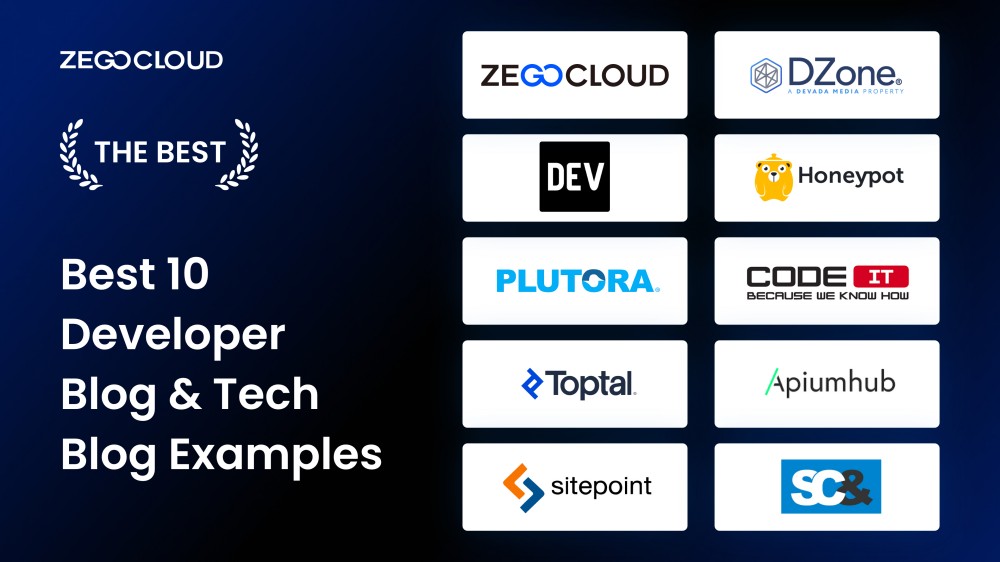The Best tech blog: Your Important Overview to Browsing the Digital World
The Best tech blog: Your Important Overview to Browsing the Digital World
Blog Article
How Blockchain Technology Is Revolutionizing Data Protection
Blockchain innovation is fundamentally altering the landscape of data safety and security by presenting a decentralized structure that guarantees improved openness and strength. Unlike conventional systems, which count on central data repositories, blockchain distributes data throughout a network, reducing vulnerabilities and single factors of failing. The use of innovative cryptographic methods makes sure that information stays tamper-proof, fostering trust among stakeholders and customers. As sectors quickly adapt to this innovation, concerns develop about its more comprehensive effect and possible obstacles. What effects does this change hold for future data protection approaches and regulatory structures? The answers may shock you (Best tech blog).
The Basics of Blockchain
Blockchain modern technology, a revolutionary principle in electronic information management, fundamentally transforms how details is stored and secured. At its core, a blockchain is a dispersed journal that tape-records purchases across a network of computers, guaranteeing transparency and immutability.
Key to understanding blockchain is the hashing process, which secures purchase data into an unique alphanumeric code. This cryptographic feature makes certain that any type of change in the transaction information causes an entirely different hash, therefore protecting against meddling. The agreement mechanism, an additional vital element, verifies and validates new deals via a network of nodes, consequently removing the need for a central authority.
In addition, blockchain's append-only structure guarantees that information, once included, can not be deleted or altered. This characteristic assurances a permanent and verifiable document of deals, cultivating trust amongst individuals. Consequently, blockchain offers a robust structure for data integrity, supplying industries a reputable approach for monitoring and handling digital info in a protected, transparent manner.
Decentralization and Protection
Decentralization, a core concept of blockchain technology, dramatically improves data security by distributing control throughout a network as opposed to depending on a particular, central entity. This distribution reduces the danger of single factors of failing, which are prevalent in standard centralized systems. By dispersing information across many nodes, blockchain makes certain that also if one node is jeopardized, the whole network continues to be secure. This redundancy not only fortifies the stability of the data yet additionally enhances its durability to cyberattacks and system failings.

Each participant in the network has access to the entire blockchain, permitting them to verify and audit purchases independently. Overall, decentralization is instrumental in enhancing data safety in blockchain networks.

Cryptographic Methods
At the heart of blockchain technology, cryptographic techniques play an essential function in protecting information, guaranteeing both discretion and stability. Cryptography in blockchain employs a mix of symmetric and asymmetric algorithms to encrypt data, making it accessible only to accredited parties.
Hash functions are an additional critical part, changing input data into a fixed-size string of characters, effectively creating an one-of-a-kind digital finger print for each block. This makes sure that any attempt to change the information will cause an entirely different hash, therefore i loved this preserving the immutability of the blockchain. find more info Electronic signatures validate the authenticity and honesty of transactions, providing a layer of non-repudiation.
The decentralized nature of blockchain, integrated with durable cryptographic strategies, gets rid of the requirement for intermediaries, minimizing possible vulnerabilities. As blockchain technology evolves, innovations in cryptography such as zero-knowledge evidence and homomorphic security proceed to enhance security procedures, even more strengthening information protection in this innovative electronic ledger system.
Usage Cases Across Industries

In the health care market, blockchain ensures the protected storage and sharing of client documents, advertising interoperability while safeguarding sensitive data from unapproved gain access to. This technology equips people with control over their case history and assists in smooth sychronisation amongst healthcare companies.
Supply chain management benefits substantially from blockchain's unalterable ledger, which guarantees traceability and credibility of products from beginning to customer. By improving openness, blockchain aids alleviate issues such as counterfeiting and underhanded sourcing.
Additionally, blockchain's decentralized nature is improving the energy industry by making it possible for peer-to-peer energy trading, where customers can get and sell excess renewable resource directly. This fosters an extra lasting and efficient energy ecological community.
In the realm of intellectual building, blockchain gives a tamper-proof platform for creators to register and secure their jobs, making certain rightful acknowledgment and fair settlement. These varied usage instances underline blockchain's role as a pivotal force in redefining information safety and security across industries.
Future of Information Security
As we look to the future of data security, blockchain modern technology is positioned to play a pivotal function in protecting electronic details. With its decentralized and immutable attributes, blockchain supplies a durable framework for protecting sensitive data versus unauthorized accessibility and cyber risks. This innovation makes certain that when data is recorded, it is almost difficult to modify without detection, therefore giving a significant benefit over conventional information storage methods.
The assimilation of blockchain with other advanced technologies, such as synthetic knowledge and the Internet of Points (IoT), is anticipated to enhance information defense approaches additionally. By leveraging smart contracts, companies can automate and implement security procedures, decreasing human error and enhancing efficiency. In addition, blockchain's capability to provide deducible and transparent sites purchases will certainly strengthen count on and responsibility in data management techniques.
As governing landscapes advance, blockchain's compliance-friendly nature will come to be increasingly pertinent. It can help companies fulfill strict information defense guidelines, such as the General Information Defense Regulation (GDPR) and the California Consumer Personal Privacy Act (CCPA), by providing verifiable records of data processing activities. Inevitably, blockchain's special qualities placement it as a transformative tool in the recurring quest to secure the digital globe versus ever-evolving cyber risks.
Final Thought
Blockchain technology represents a paradigm shift in information safety by leveraging decentralization and cryptographic methods to boost openness, depend on, and data stability. Its capability to get rid of solitary factors of failure and use agreement devices significantly decreases the danger of scams and cyberattacks. This ingenious framework not just encourages individuals with greater control over their data but likewise aligns with regulatory compliance. As cyber threats develop, blockchain emerges as a vital device for durable information security across various sectors.
Blockchain technology is basically modifying the landscape of data safety by introducing a decentralized structure that promises improved transparency and resilience. Unlike conventional systems, which rely on centralized data databases, blockchain distributes information across a network, reducing susceptabilities and single points of failure.Decentralization, a core principle of blockchain modern technology, considerably boosts data protection by dispersing control across a network instead than relying on a particular, centralized entity.At the heart of blockchain modern technology, cryptographic methods play a crucial role in guarding information, making sure both discretion and stability.Blockchain innovation represents a paradigm change in information security by leveraging decentralization and cryptographic methods to improve openness, trust, and information integrity.
Report this page